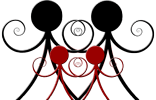Very interesting!
Effective ADHD Treatment Found for Children with Fragile X Syndrome
ScienceDaily (Feb. 21, 2008) — Fragile X syndrome (FXS) is the most common hereditary form of mental retardation. Many children with FXS also suffer from attention deficit and/or hyperactivity disorder (ADHD), which complicates social relationships at home and at school. Although stimulant medication such as Ritalin® is often successfully used to treat children with ADHD, studies have shown that while it is effective in children with mental retardation, it also causes side effects such as increased irritability, decreased verbalization and social withdrawal.
A previous study showed that L-acetyl carnitine (LAC), a form of the amino acid carnitine, significantly reduced hyperactive behavior in FXS boys with ADHD who were treated with it for one year without causing adverse side effects. The same authors have now conducted a randomized, double-blind, placebo-controlled multicenter study to determine the effectiveness of LAC in a larger group.
Led by M. Giulia Torrioli and Giovanni Neri of the Università Cattolica in Rome, the study involved 51 boys between 6 and 12 years old with FXS and ADHD who were treated in one of eight centers in Italy, France and Spain. Each patient followed the treatment for 12 months, which involved 500 milligrams of LAC or a placebo given twice daily. Patients were evaluated by an interdisciplinary team of child neuropsychiatrists and psychologists at the start of the study, after one month, six months and 12 months. The effects of the drug and placebo were evaluated using a set of neuropsychological tests to assess behavior.
Those treated with LAC demonstrated reduced hyperactive behavior and increased attention. No side effects were exhibited, confirming that LAC is a safe alternative to stimulants. The patients treated with the placebo also showed reduced hyperactive behavior, although not nearly to the extent as the LAC-treated patients. The patients treated with LAC also had significantly improved social ability compared to the placebo-treated group. Both groups took intelligence tests, but LAC did not improve overall intellectual functioning.
“We propose that LAC be recommended as a treatment of ADHD in FXS children,” conclude the authors, “since it effectively reduces hyperactive behavior and improves social abilities without adverse side effects.” They also suggest that these results may be applicable to children with autism, who also do not easily tolerate stimulants.
